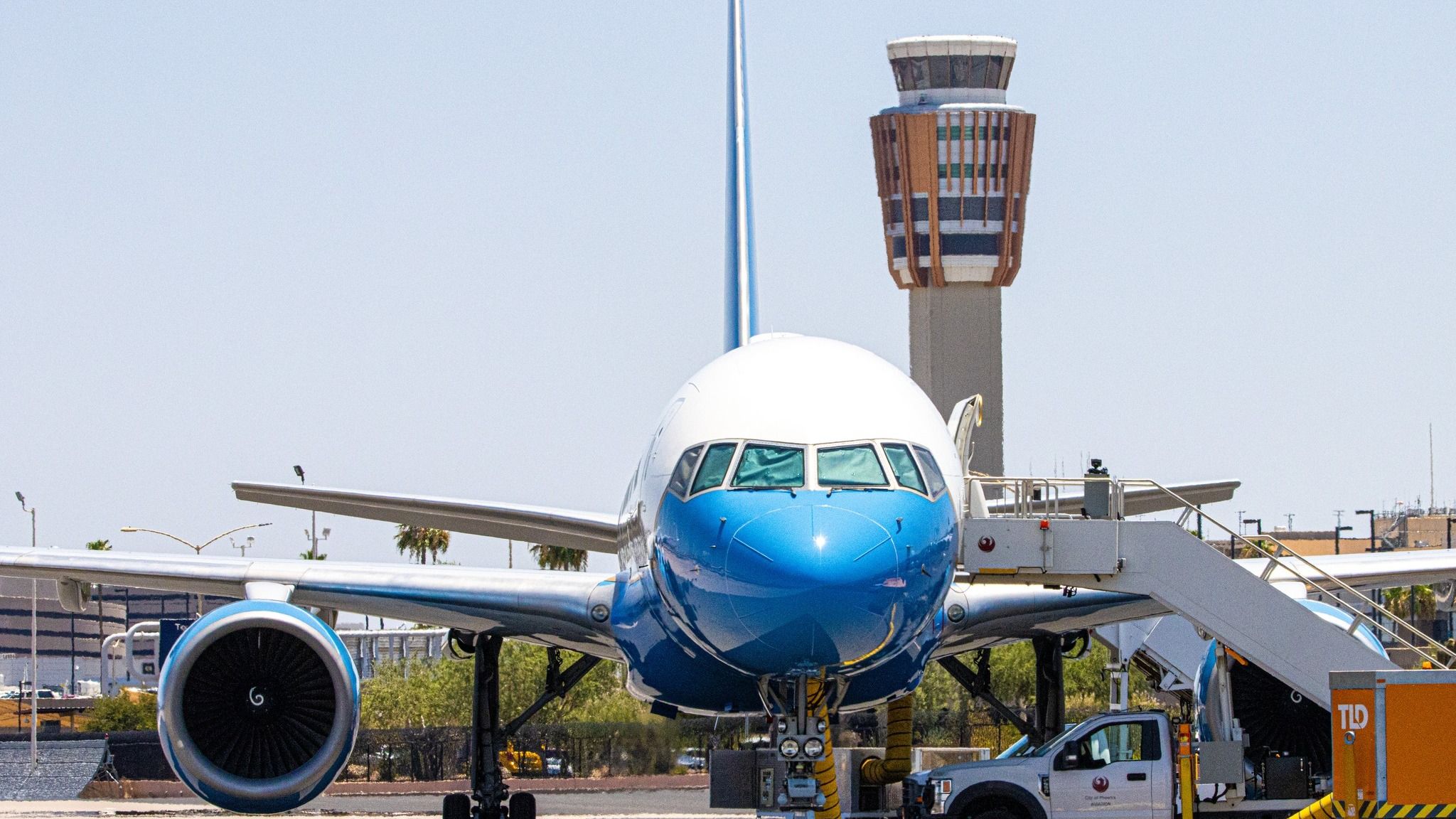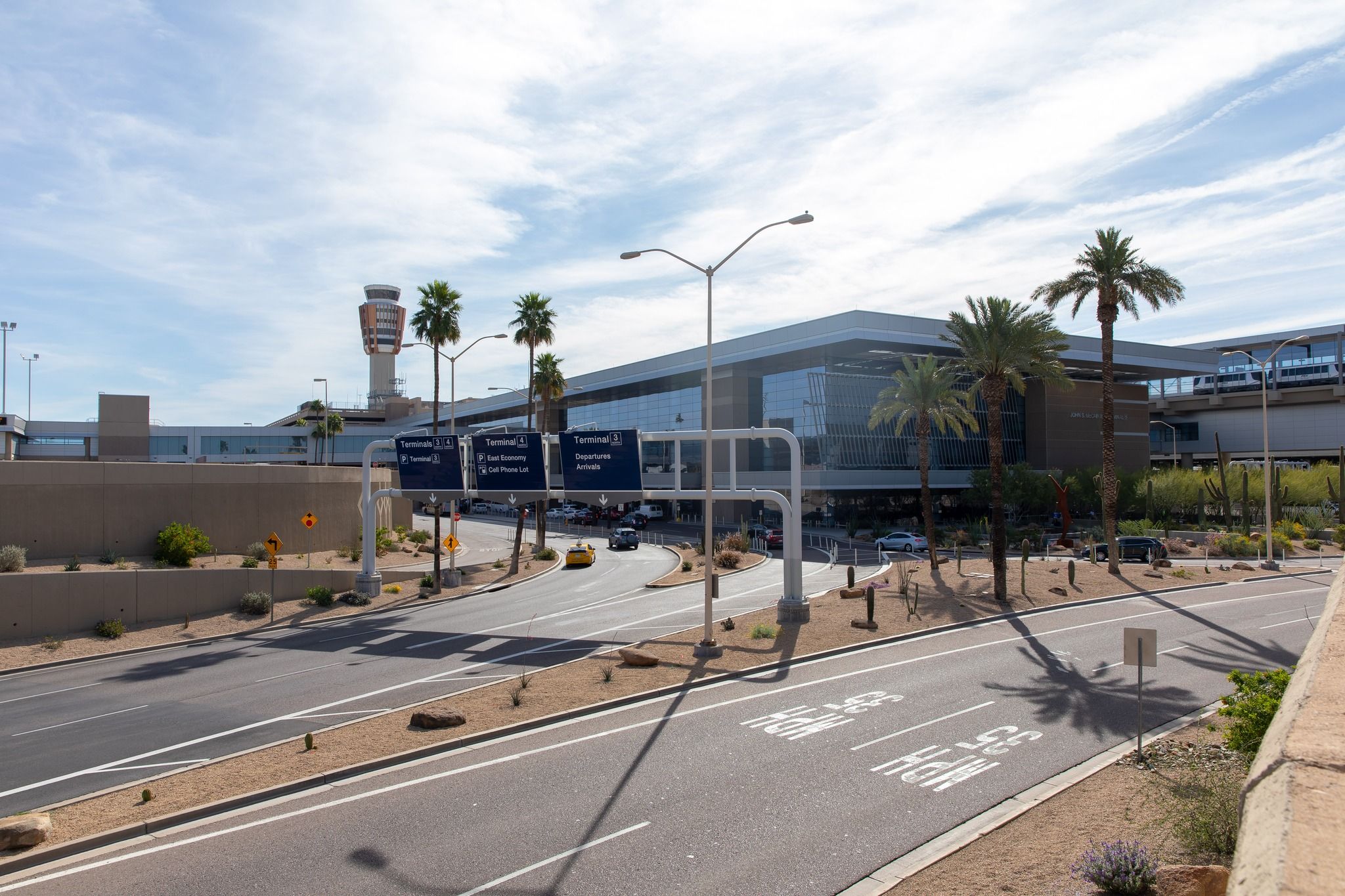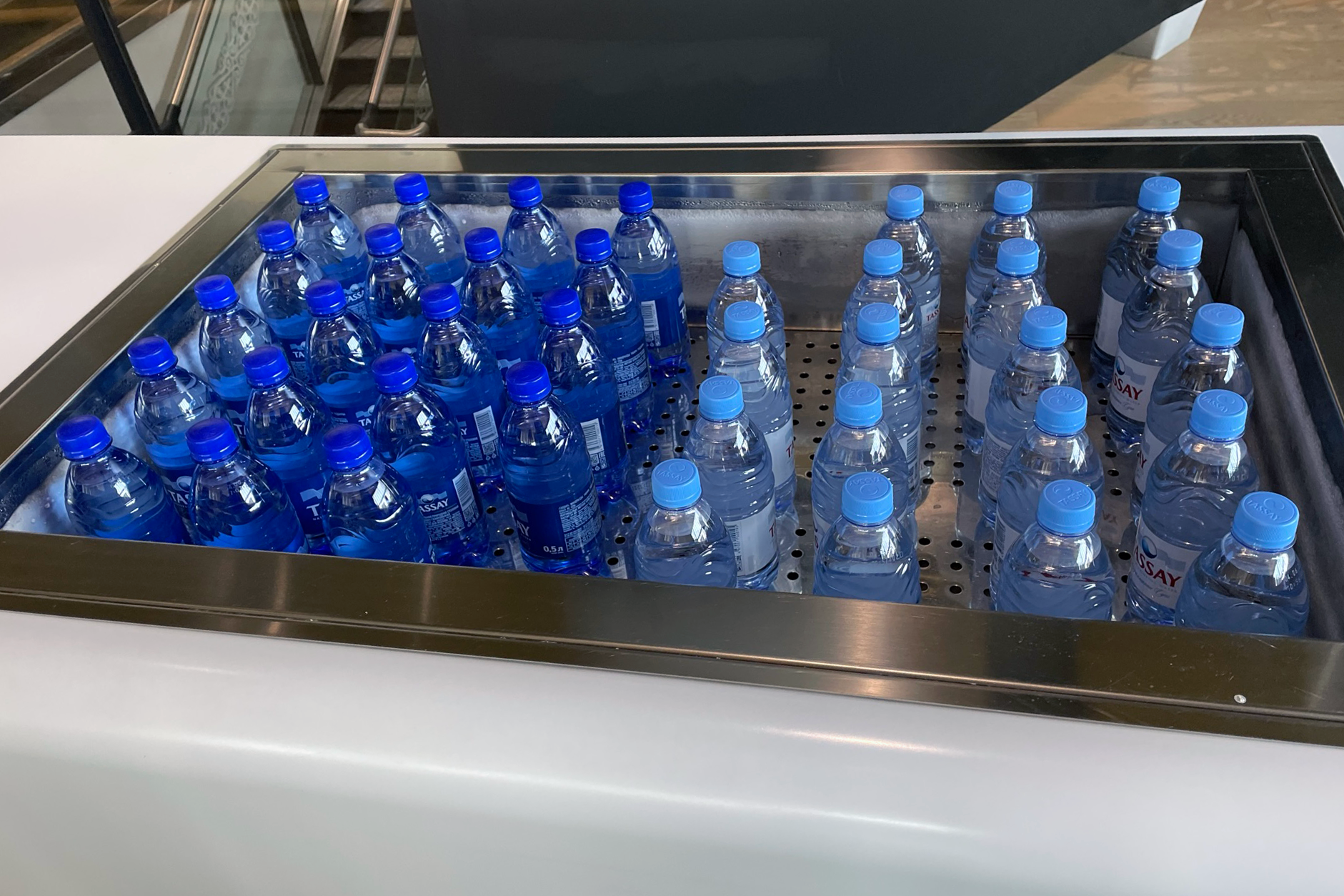Summary
- Airport officials took immediate actions after Legionella bacteria and copper traces were found in water tests at Phoenix Sky Harbor International Airport.
- Nine out of 14 locations tested positive for Legionella, including breakrooms for TSA employees and water fountains.
- Although Legionella in drinking water poses no health threat, elevated copper levels can cause gastrointestinal issues.
Officials at Phoenix Sky Harbor International Airport (PHX) took “immediate and comprehensive actions” last week after water tests detected traces of Legionella bacteria and increased levels of copper. The measures, which were reportedly “proactive,” called for shutting off water in some areas around the airport.
The discovery comes as the Valley of the Sun has been experiencing another scorching summer, with nearly 30 days of temperatures soaring to 110 degrees or higher. Airport officials say the immediate action displays PHX’s commitment to the safety of everyone visiting the airport.
9 out of 14 locations
According to the City of Phoenix Aviation Department, the presence of Legionella bacteria and copper was revealed on July 23rd after being identified during a mandated water quality inspection. Officials tested fourteen locations at PHX for the bacteria, and nine came back with positive results. Breakrooms for Transportation Security Administration (TSA) employees in Terminals 3 and 4 were among the locations with positive tests. Traces were also found at two post-security public water fountains in Terminal 3.
Photo: Phoenix Sky Harbor International Airport
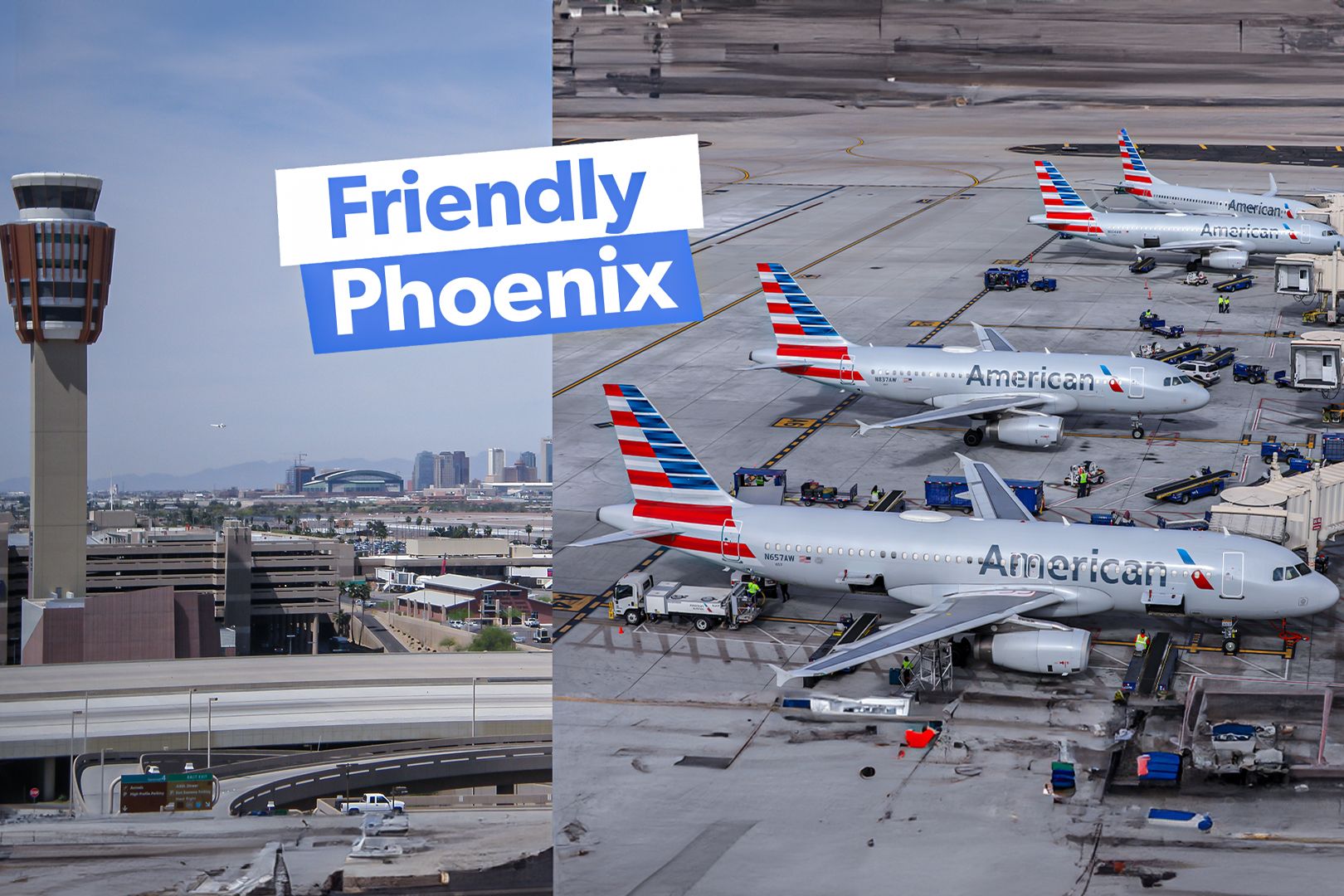
Read More
Why is Phoenix Sky Harbor Known as America’s Friendliest Airport?
Discover why the Wall Street Journal and others are celebrating PHX yet again for its award-winning service and innovative passenger programs.
Water testing was conducted in late June as part of the General Service Administration (GSA) Unilateral Amendment for TSA leased space. The City says it was done as part of the GSA’s national campaign to evaluate water quality in TSA-leased spaces at several airports as the country strives to meet stringent health and safety standards. The inspection also involved testing for lead and E. coli.
Legionella is a waterborne bacterium found naturally in freshwater environments. According to officials, there is no risk to public health as there are currently no known cases related to the exposure. The Maricopa County Public Health Department says drinking water contaminated with Legionella “is not a risk, and there is no immediate threat to public health posed by its presence in drinking water.”
Additionally, there is no standard for the bacteria in drinking water since it is common in water systems. However, if inhaled through aerosolized water droplets, it can cause Legionnaires’ disease or Legionellosis, a type of pneumonia. Cough, shortness of breath, fever, muscle aches, and headaches are common symptoms of the disease.
Although the bacteria in drinking water does not pose health risks, the consumption of elevated copper levels does. If consumed in large quantities over time, copper can cause gastrointestinal distress. Long-term exposure could result in liver or kidney damage. Common symptoms of elevated copper exposure include stomach pain, nausea, vomiting, and diarrhea.
A precautionary measure
Phoenix Water Services Director Troy Hayes said the discovery does not currently threaten PHX’s water supply.
“There is no current threat to the water supply, and all water quality parameters associated with the drinking water system are within normal operating ranges. The elevated levels of Legionella and copper were isolated to specific areas, and we are confident in the safety of the overall water system.”
Photo: Tom Boon | Simple Flying
Out of an abundance of caution, officials shut off water to the impacted areas. The airport said last week that water remained off in the affected areas, but bottled water was being provided to employees. It is unclear if the water has been turned back on. Officials also initiated comprehensive flushing and retesting of the airport’s water systems. Some faucets in the affected areas were also replaced.
“Phoenix Sky Harbor is committed to maintaining the highest standards of safety and transparency,” said Chad Makovsky, City of Phoenix Aviation Director. “We are working diligently with health experts and taking all appropriate measures to ensure the well-being of everyone at our airport.”
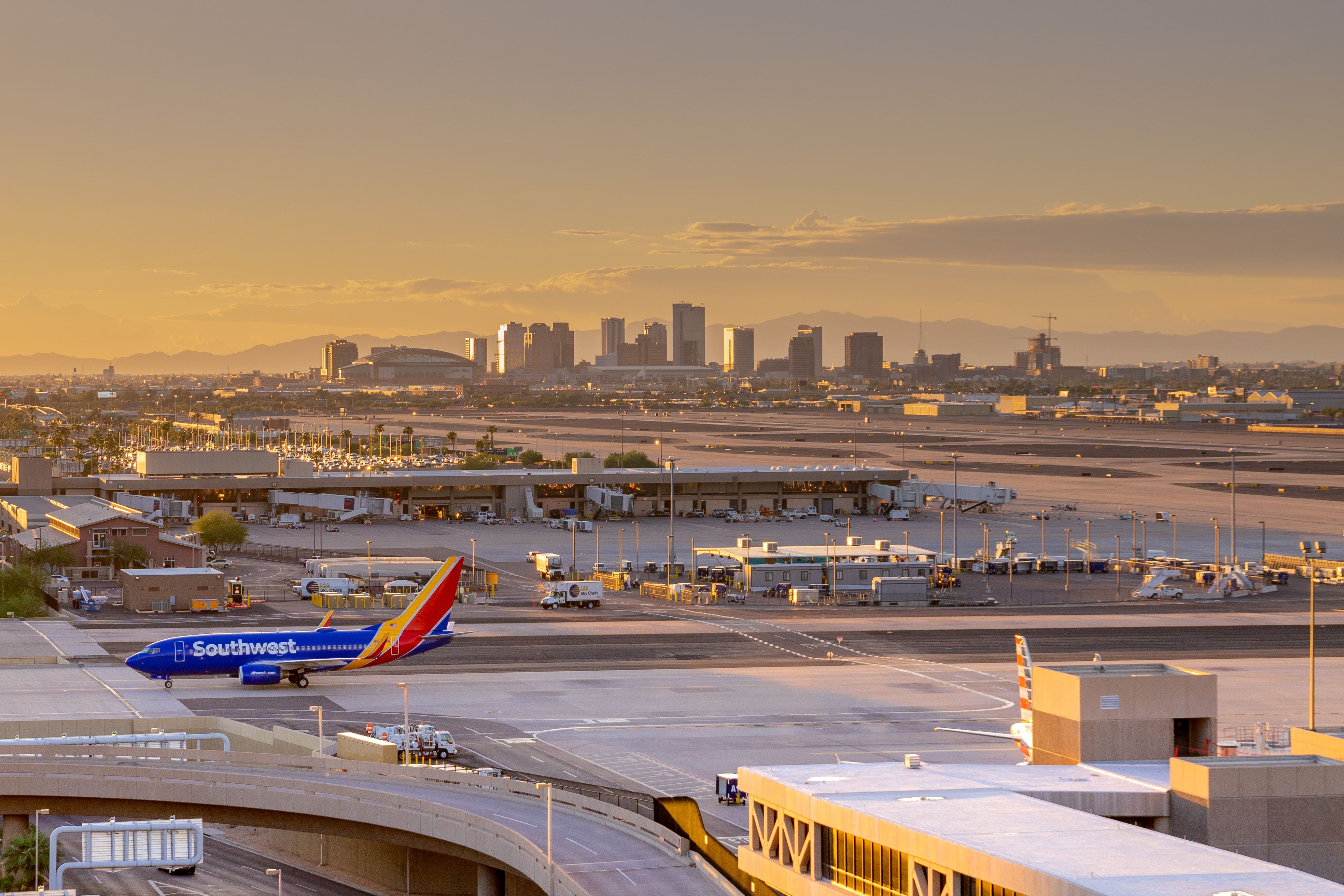
Read Next
Phoenix Sky Harbor International Airport Will Build New Terminal To Meet Increasing Demand
Construction on the terminal will not begin until at least 2030.
